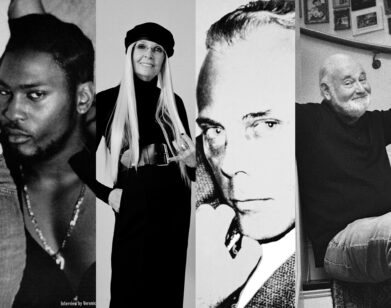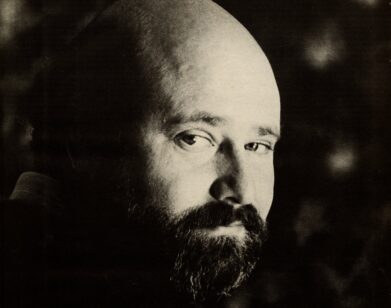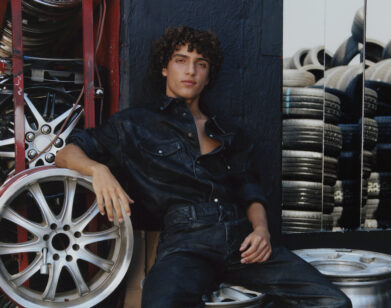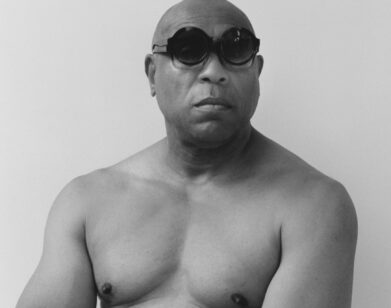DIRECTOR
Rob Reiner and Seth Rogen on Sex, Schnadling, and Spinal Tap II
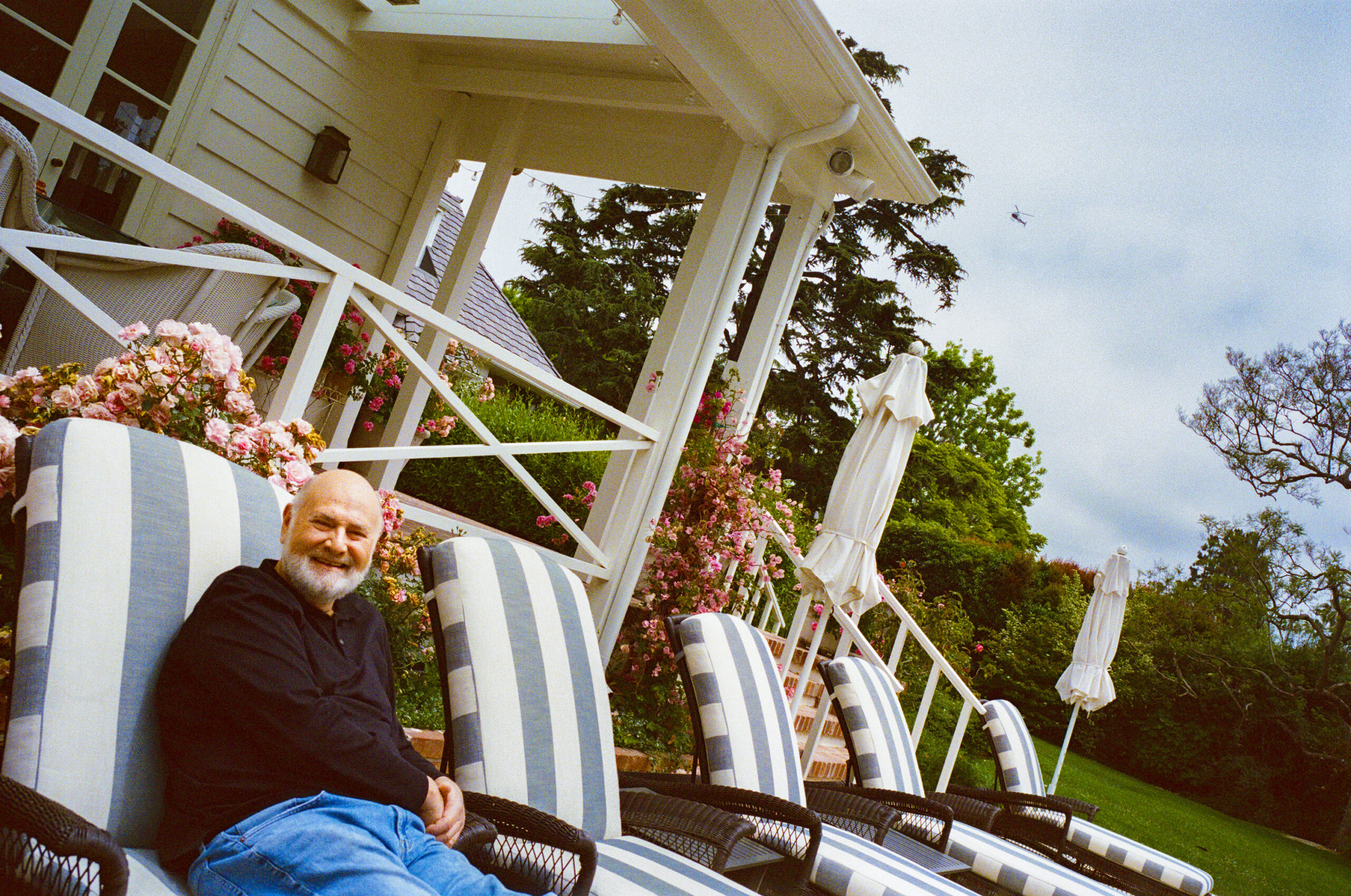
Rob Reiner wears Clothing and Accessories (worn throughout) Rob’s Own.
With This Is Spinal Tap, Rob Reiner helped invent the mockumentary. With When Harry Met Sally…, he redefined the rom-com. And with Stand by Me, Misery, A Few Good Men, and The Princess Bride, he directed a staggering run of generational classics that still hit today. That was after he won two Emmys as Archie Bunker’s idealistic son-in-law Michael Stivic on All in the Family. Now, at 78, Reiner is bringing the band back together in Spinal Tap II: The End Continues—with Christopher Guest, Harry Shearer, and Michael McKean reprising their roles as the world’s most clueless rock stars. Enter Seth Rogen, the writer, director, and actor who grew up on Rob’s movies and couldn’t pass up the chance to schnadle with one of his heroes.
———
MONDAY 2 PM JUNE 23, 2025 LA
SETH ROGEN: Hey, Rob. How are you?
ROB REINER: I’m doing okay, how about you?
ROGEN: I’m good. Pretty busy these days.
REINER: You’ve been doing a lot.
ROGEN: I loved your movie. It was so funny.
REINER: Oh, thanks.
ROGEN: I’m going to start the interview process.
REINER: You can ask anything. It doesn’t have to be about the movie. It could be sex, religion, politics.
ROGEN: [Laughs] Perfect. I’ll start with the movie, though. Had there been improvised comedy before This Is Spinal Tap?
REINER: Well, onstage you had [the] Second City and such, but I don’t think anybody had done a completely improvised film. People said, “It’s your first film. Why don’t you have a script?” I said, “Because this is what I feel comfortable doing. I was raised doing improv.”
ROGEN: You created a format of comedy that is still alive today.
REINER: I had a conversation with Ricky Gervais the other day, and he was saying that it became the way he did The Office. Then Chris Guest had an idea, and that became Waiting for Guffman, which was done the same way.
ROGEN: What made you want to do it?
REINER: Over the years, people kept saying, “You’ve got to do a sequel.” We said, “We don’t want to, we’ve done it.” But then Harry [Shearer] had filed a lawsuit against the people who owned it, because, you’re going to laugh at this, but the four of us had a deal that said 40 percent of all profits will go to us. I’m not exaggerating, but over the 35 years, we each got 82 cents.
ROGEN: Oh my god.
REINER: So Harry said, “This can’t be right. We should get a little bit more with DVDs and videos and re-releases.” So he sued these companies that owned the rights, and we got back the rights.
ROGEN: That’s amazing.
REINER: Now that we had the rights back, what do we do with it? Initially we were saying, “Let it be.” Then slowly we started coming up with this idea, and we could still make each other laugh, so we started doing it.
ROGEN: You wrote it in a room together?
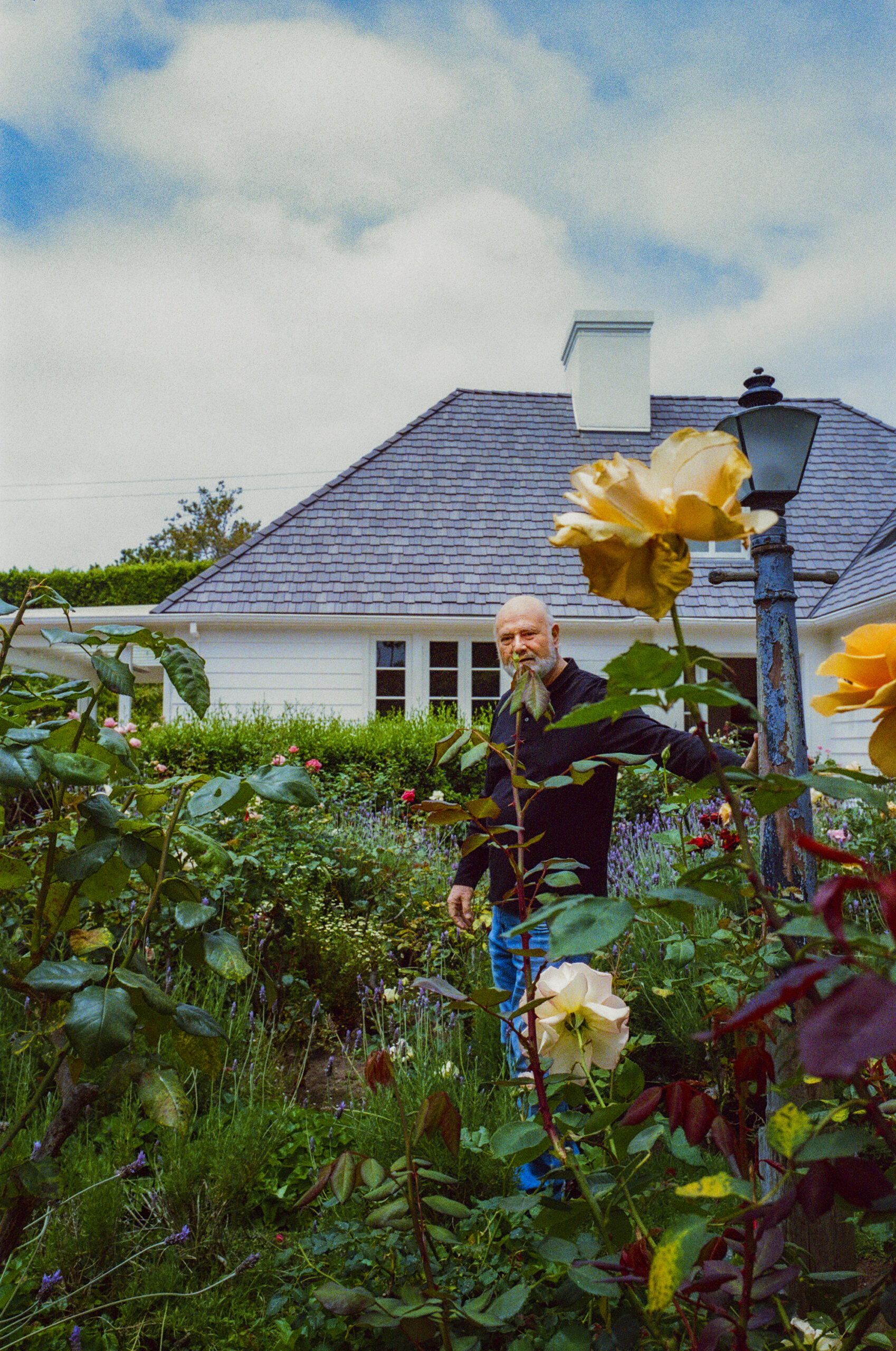
REINER: Yeah. We came up with ideas for scenes. You sit around and do schtick with each other—Chris calls it schnadling. We do the scene a couple of times and something funny comes out.
ROGEN: Our first movies with Judd [Apatow], we shot on film, and I think on one of them, we shot over 2 million feet of film.
REINER: Seriously? Not on Freaks and Geeks?
ROGEN: No, that was filmed, but we didn’t improvise that much. But [The] 40-Year-Old Virgin, Knocked Up, those we both shot over a million feet. I think on Funny People, we shot over 2 million feet of film. We had 2,000-foot mags of film. They shot Cheers on shit like that.
REINER: Wow. But that’s fun. When you’re working with somebody like Judd who you feel comfortable with, he sets a good tone and everybody feels comfortable.
ROGEN: I’ve directed a few things with actors who are improvising a lot, and sometimes they’re firing on all cylinders, and sometimes they’re definitely not. It’s a very nuanced dance. Actors sometimes shut down if they feel what they’re doing isn’t funny, and sometimes, if they get excited about a thing that you, in your head, are like, “This is never going to be in the fucking movie,” I gotta let them get it out of their system. Is that something you encounter as well?
REINER: First of all, you have to have people that can actually do it.
ROGEN: Yes.
REINER: So if you got them, you let them go, and you never know what they’re going to come up with. A lot of it is crap. The first Spinal Tap took me nine months to edit.
ROGEN: You had one of the most unprecedented runs in the history of movies. Those are movies that shaped my sensibility and my taste. What was that like?
REINER: All I’ve ever done is say, “Is this something that is an extension of me?” For Stand by Me, I didn’t know if it was going to be successful or not. All I thought was, “I like this because I know what it feels like.” In the novella Stephen King wrote, Gordie was just an observer, but I made him the main character. I know my dad [Carl Reiner] loved me, but at times when I was young, I didn’t feel it because he was distracted. So I said, “If I can get that idea across in the movie, and that can be the thing that drives Gordie to want to see this dead body, then I’ll find my way.” People liked it, and I felt good about it because it was the first time I’d done something that was a total reflection of my personality. You look at A Few Good Men and say, “It’s about the military and following orders.” But for me, it was about a kid who had a father who was a famous lawyer, and argued all these things in court, and he was a guy who never argued anything in court. He always settled the case. I said, “That’s where I go.” When he goes, “I’m going to put Jessup on the stand,” it was this kid saying, “I’m going to make my mark.” That’s how I found my way into that story.
ROGEN: Right.
REINER: Same thing with Misery. You might say, “Why the fuck did he ever want to do that movie, because it’s so far afield from anything he’d done?” But I said, “Here’s a guy who’s done something his whole life. He’s become tremendously successful writing about this one character.” I’d become very successful being a sitcom actor. They wanted me to continue doing that. I said, “No, I want to be a director.” So here you got this character who wants to break away from the Misery character. All the people that I was working with said, “No, you’re a sitcom actor. You’re not a movie director.” In those days, there was no crossover between movies and television. Movie people were royalty, television people were peons. So I knew what it felt like to be held down by that. That’s what motivated me to do Misery.

ROGEN: I saw A Few Good Men on opening night as a kid; it was one of the first adult movies I saw. Was it intimidating for you to take on something that was so adult?
REINER: Again, I’m like an idiot. I just jump into something. I don’t get intimidated. Maybe I’m stupid.
ROGEN: You’re clearly not. Why do you think When Harry Met Sally… has resonated for as long as it has?
REINER: Obviously there’s been a million romantic comedies. I was single for 10 years after being married for 10 years, and I was making a mess of every relationship. I couldn’t figure it out. Can you have sex with somebody and then if you’re not friends with them, how does that work? So that became the fodder for it. Then Nora [Ephron] came in because I had to have a woman’s point of view. Together we said, “The obstacle for these two people is themselves.” It’s basically their neuroses that’ve kept them apart. I think what makes it sustainable is people can relate to it. A woman says, “Yes, I’ve faked an orgasm in my life.” Men say, “Yes, I know what it feels like to have sex and not want to be around somebody that you’re not in love with forever.”
ROGEN: How did you take a movie that is essentially a few people talking and make it feel dramatic and huge?
REINER: It goes back to connecting to what men and women go through. When people would ask me, “These people are always talking about relationships; why don’t they talk about their work life?” what I used to say is, “They talk about their work life all the time. I just didn’t put it in the movie.”
ROGEN: Visually, did you say, “How do we make this look not like a tiny little movie of people talking in rooms?”
REINER: I didn’t think of it that way. The only visual thing that was difficult was the scene where Harry’s on the phone with Jess, played by Bruno Kirby, and Meg [Ryan] is on the phone with Carrie Fisher, and they’re talking about separate things, and they’re all on camera.
ROGEN: They’re all singular takes, right?
REINER: There’s no way to intercut it because they’re all on camera at the same time, so I wired the phones so that they could all hear every bit of every conversation, because many times their cue would not be from the character they were talking to. We shot 61 takes.
ROGEN: Holy shit!
REINER: Because if you blow one line, you restart from the beginning.
ROGEN: We do the same thing in our show, The Studio. How do you find acting and directing yourself?
REINER: I don’t like it. You’ve done it, right?
ROGEN: A lot.
REINER: How do you feel about it?
ROGEN: Mixed. If it’s good, I like it.
REINER: But don’t you feel that when you’re in a scene, you’re watching the other person’s performance and you’re not in the moment?
ROGEN: I’m very much not in the moment. [Laughs] I don’t know if I’m ever in the moment. Using improv as an example, if I’m not directing and I don’t feel the improv is the funniest thing in the world, I’ll just keep going because maybe it’ll get somewhere. But if I’m directing and I feel like it’s not great, I just physically drop out of the scene. [Laughs]
REINER: It’s a weird thing. When I did All in the Family in front of a live audience, I was always aware of where the cameras were, what the audience was doing, and the other actors. I recently did three episodes of The Bear. You know it?
ROGEN: Of course.
REINER: I’m just acting in it. I like doing that because somebody else has to worry about everything else. Years ago, Ron Howard called me up and said, “You want to be in EDtv? I said, “Okay.” He says, “Well, don’t you want to read the script?” I said, “No, if it stinks, it’s not my fault. I’m just acting.”
ROGEN: [Laughs] Going back to This Is Spinal Tap, when it first came out, it wasn’t a huge hit, was it?
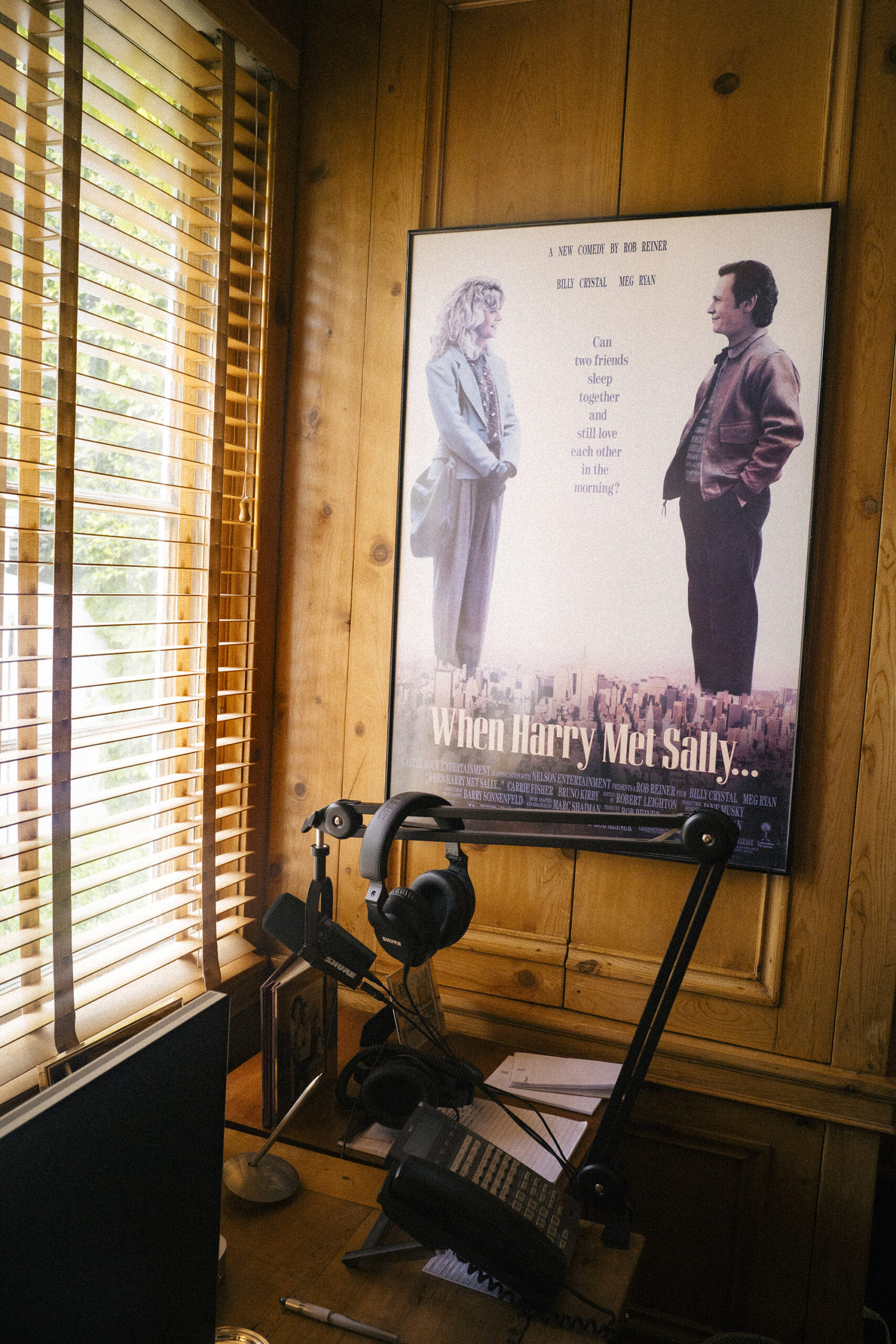
REINER: No, no, no. A lot of people didn’t even get it. We screened it in Dallas, and people came up to me and said, “Why would you make a movie about a band nobody’s ever heard of and one that’s so bad?”
ROGEN: They thought it was real.
REINER: A lot of people did. Even some rockers who saw it were pissed off.
ROGEN: Was there a moment where you’re like, “Oh, shit, it’s a fucking hit”?
REINER: When people started quoting it. When you see things like “These go to 11” being entered into the Oxford English Dictionary as a phrase that refers to not just music, but anything that exceeds its capacity, then it’s like, okay, we’re in the zeitgeist.
ROGEN: Do you have more movies that you’re working on?
REINER: I’m not going to mention one because it has to be kept under wraps, but I’m going to be shooting something in August. I had this idea I’ve had for over 50 years, and I’ve tried a number of times with different writers with different scripts. I’ve never been able to get a good one. I’m going to try one more time and see if I can pull it off. But again, I’ve got to find my way in.
ROGEN: I loved your Albert Brooks documentary [Albert Brooks: Defending My Life] so much.
REINER: That was a total labor of love. Albert is my dear friend. We went to high school together.
ROGEN: Really?
REINER: Yeah, and we shared a house for a year. I was upstairs, he was downstairs, and whenever I brought a girl over and we were in the throes of making love, when we finished the phone would ring and he’d go, “Are you done?” I go, “Yeah.” He goes, “Want to get something to eat?” I said, “Alright.” He goes, “Sushi?” Then we’d go to get it.
ROGEN: When I was a young man who wanted to be a writer and director, you and Albert Brooks were the people I looked at as proof that I could succeed in some capacity.
REINER: You need those kinds of models.
ROGEN: It was how people like you and Albert and Harold Ramis could occupy all the roles in a very graceful way, and you would act in other people’s things.
REINER: The directors that I liked the most were the ones who also acted. If you look at Orson Welles or Sydney Pollack, they’re all people who know what it’s like to be in front of the camera. I’m not the best actor in the world, but I’d never ask another actor to do something I couldn’t do.
ROGEN: You’re so good in The Wolf of Wall Street, where you worked with my friend Jonah [Hill].
REINER: Oh man, Jonah was great because Scorsese would let you improvise. Jonah and I had a really good moment, which was completely improvised, where I’m questioning their expense account. I said, “What is this? $26,000 for these meals?” He says, “Well, we ordered sides.” Then I said, “What kind of sides were these? Did they cure cancer?” He said, “Oddly enough, they did.”
ROGEN: [Laughs]
REINER: It’s fun when you get to be with somebody who can schnadle with you like Jonah did.
ROGEN: I’m going to use schnadle from now on. I actually met your dad one time for 10 minutes, and it was a true delight. I had dinner with Ben Stiller recently, and we were talking about what it’s like to have a dad who’s a comedy legend and trying to pursue comedy at the same time.
REINER: Yeah, Ben was telling me he’s working on a documentary about his mom and dad, who were a very successful comedy team. I’m really interested to see that because I know it must have brought up stuff for him as a kid—what he was thinking watching his dad and his mom on The Ed Sullivan Show. It’s a thing.
ROGEN: What was that like for you?

REINER: Basically, I wanted to be him. People loved him, not only from his performances, but because he was very gracious. I said, “I want to be that.” When I was like 13, I’d go to The Dick Van Dyke Show where he was the head writer and producer. I went up to his office one time when he wasn’t there, and I sat behind his desk and went, “I can’t do this. How do you do this?” I was totally intimidated by what he was able to do. So, yeah, that’s always been hanging over me.
ROGEN: That’s so interesting. Personally, I just want to know, what was Jack Nicholson like to work with?
REINER: He loves doing what he did, and he’s great at it. The performance he gave at the table read is the performance he gives in the film.
ROGEN: Holy shit.
REINER: A lot of times actors will kind of mark the script and go through it, but he sent a signal to all the young actors, Tom [Cruise] and Demi [Moore] and Kevin Bacon, that, “Uh-oh, we have to come up because this is what this guy is doing.” It’s like you watch Babe Ruth get in the batting cage and he’s smacking them out of the park, and you get in—you say, “Oh, I better start hitting.” He’s smart, because it’s like any great member of an ensemble: “I’m going to be made better by helping everybody else.” Jack understood that. There’s a reason why he’s a legend.
ROGEN: He really is.
REINER: So what are you doing now, Seth?
ROGEN: We’re writing the second season of The Studio.
REINER: When do you start shooting that?
ROGEN: Probably around the end of the year.
REINER: I watched the first episode and it was exactly what goes on. You play a character from a bygone era in a way, because I guess what you’ll get to is how streaming has taken over how movies are made, and what movies get to be in the theaters. It couldn’t be more different than when I started out.
ROGEN: Even when I started, it was completely different. We would make these little $20 million movies; they’d make $100 million in theaters and another $100 million on DVD. And now, those movies probably wouldn’t even get made.
REINER: They don’t get made, and certainly if they get made, they’re not going to be in the theaters.
ROGEN: They’ll be on Hulu.
REINER: Spinal Tap II is going to come out in the theaters.
ROGEN: That’s so great.
REINER: I’m hoping it does okay, but it’s not like we’re doing A Minecraft Movie. People are going to come? I don’t know.
ROGEN: I think they will.
REINER: Look at Anora. It won the Oscar, and it did like $18 million, so I don’t know.
ROGEN: [Laughs] It’s true that stuff is winding up in different places, but I do feel like I’m always seeing good movies.
REINER: But don’t you want a crowd to watch with?
ROGEN: Very much so. There’s a movie called One of Them Days that came out earlier this year with Keke Palmer that was an R-rated comedy. I saw it at a theater opening weekend, and I was like, “I feel like this is the first time in years that I’m sitting in the theater watching a comedy with a bunch of people.”
REINER: It did okay?
ROGEN: Yeah, it did pretty good. I think they’re making a sequel to it, actually.
REINER: Good. We’ve got the first Spinal Tap being rereleased on July 5, then this one comes out on the 12th of September.
ROGEN: I’ll be there in the theater. Well, thank you so much, Rob. It was truly an honor to speak with you.
REINER: Thanks for doing this, Seth. I really appreciate it.
ROGEN: No problem. I would not be the filmmaker I am today without your work.
REINER: That’s really sweet of you to say. Good luck with the second season of The Studio.
ROGEN: Thank you. There’s a very good chance I’ll call you to be on the show sometime.
REINER: I would do it, for sure.
———
Grooming: Frankie Payne using Oribe and Charlotte Tilbury at Opus Beauty.
Photography Assistant: Anna Sophia Moltke.
Fashion Assistant: Joi Holmes.
Production: Glia Productions.
Production Coordination: Sofie Warshafsky.
Production Assistant: Ben Weinswig.


